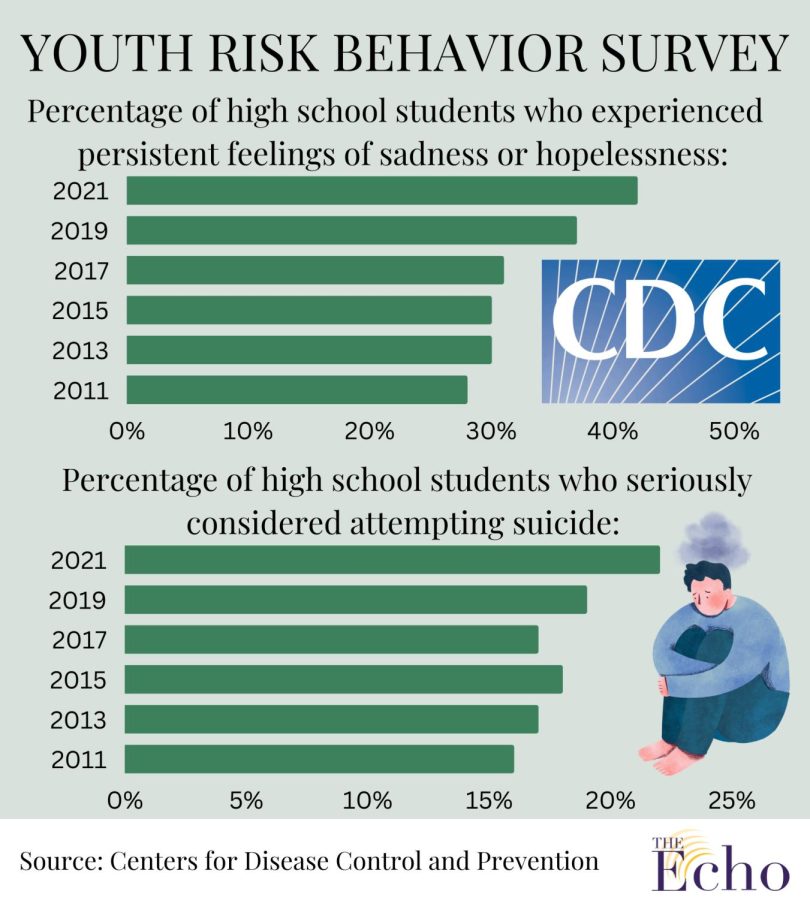CAPS hiring, shortage of therapists
March 21, 2023
Counseling and Psychological Services at California Lutheran University is hiring for the staff clinician position and has been searching to fill it for the last semester.
“For the last semester, we have been trying to backfill the staff clinician position. We just filled it with an internal person, Dr. Ricardo Cornejo, but then that leaves the doctoral resident position open for the rest of the semester,” Director of CAPS and licensed psychologist Anna Guerin said.
Although Guerin is relatively new to Cal Lutheran, having been promoted to director from staff clinician in July, she said that the position has been open for a while.
Patricia Yabu, clinic director of Community Counseling Services, said that most mental health clinics or offices have seen a shortage of therapists.
“A number of people are calling in here saying ‘I can’t find a therapist accepting new clients. So even though I have insurance, I don’t know where to get help because people aren’t accepting new clients,’ and I think that’s because fewer people are actually providing it right now,” Yabu said.
Yabu said that after the lockdown, everyone had to readjust to the lifestyle we were accustomed to and that while more people are seeking mental health treatment, fewer providers are available to give out services.
“The other thing that happened was that a lot of people reevaluated their priorities, and I think a number of people retired a little earlier,” Yabu said. “Some people left different practices. A lot of therapists even quit practicing or were cutting down their hours. So, I think people have a new appreciation for their personal life.”
Yabu said that although there is a more challenging time finding staff, physicians and professors have found that younger generations are more accepting of seeking treatment and discussing their mental health problems.
“Social media and a lot of public outlets really started to normalize mental health treatment. So, I think there has been a big shift in what’s okay. Making it something that is okay to do,” Yabu said.
The “Youth Risk Behavior Survey” by The Center for Disease Control and Prevention, provided by Guerin, analyzed different students in 2021 and noted the impact high school students felt after returning from online to in-person instruction.
“These both show trends that mental health concerns about adolescents and young adults either seeking care or experiencing mental health concerns are increasing,” Guerin said in a follow-up email interview.
The findings of the CDC’s survey in 2021 were compared to those in 2011, finding that students’ mental health and sexual behavior have worsened in the last few years, but a spike was found due to the COVID-19 pandemic.
“As anxiety went up, there was also less social contact. So those two things taken together left people being much more stressed and looking for a way to be supported. Which was of course very difficult during COVID-19,” Yabu said.
Nicole Talarico, visiting lecturer of psychology, said she has noticed that students are less engaged in class and with one another. Talarico said that more of her students have disclosed more feelings of depression, loneliness and stress.
“CAPS and the available counseling services are so wonderful for students, and I wish more students would go and seek those services out. I know sometimes you can feel uncomfortable or vulnerable to admit that ‘I need help,’ and I want them always to feel supported by staff and faculty,” Talarico said.
CAPS offers emergency counseling during office hours Monday through Friday from 8:30 a.m. to 12 p.m., and 1 to 5 p.m. CAPS encourages students that face a psychological emergency during non-office hours and on campus to contact campus safety at (805) 493-3911. If not on campus, don’t hesitate to get in touch with the National Suicide Prevention Lifeline at 1-800-273-8255 or 911.




















